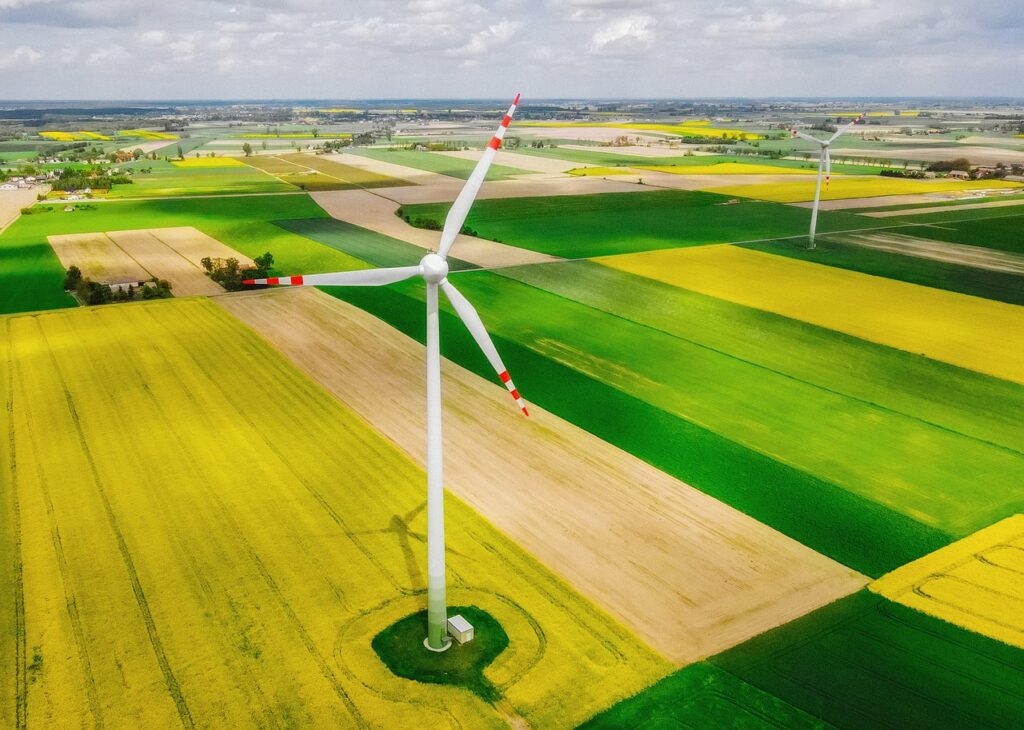Amendments to the Energy Act, which were recently adopted in the Assembly of Republic of Serbia, have attracted a lot of public attention. What these changes mean for the RES sector was analysed by RES Serbia and BDK Advokati, a regional law firm with a presence in Serbia, Montenegro and Bosnia and Herzegovina.
The National Assembly of the Republic of Serbia adopted the Law on Amendments to the Energy Act (“the Amendments”) on Wednesday, 27 November 2024. The main purpose of the Amendments is to harmonize Serbia’s regulatory framework in the energy sector with the European Union’s regulations, in accordance with obligations under The Energy Community Treaty and Ministerial Council Decision 2022/03/MC-EnC, enhance energy security and promote further transition to renewable energy sources.
Public attention has largely focused on the repeal of the moratorium on use of nuclear energy in the Republic of Serbia, which was introduced during the time of Socialist Federal Republic of Yugoslavia, after the Chernobyl disaster. The Amendments envisage the adoption of a development program for the peaceful use of nuclear energy, to be implemented in three phases.
Another significant change pertains to provisions regarding the nominated electricity market operator, which will enable the integration of organized electricity markets of the Republic of Serbia with the single European organized electricity markets in the foreseeable future.
Although Republic of Serbia already has a specific law regulating the use of renewable energy sources since 2021, a substantial part of the Amendments directly affects further development of renewable energy projects in Serbia. Below is an overview of the most important provisions relevant to the renewable energy sources (RES) sector.
Issuance of Energy Permits
The Amendments introduce changes regarding the conditions that must be met for obtaining an energy permit. Notably, a new condition for the issuance of energy permit is project’s alignment with the goals outlined in the Energy Strategy and the Integrated National Energy and Climate Plan.
Further new conditions relate to construction on exploitation fields and an assessment of alternatives to the construction of a power plant, such as demand response or the construction of energy storage facilities.
The actual effects of the Amendments in this area will become clear only after the introduction of the amendments to the relevant bylaws (specifically, the Rulebook on Energy Permits), which should precisely define the criteria for the assessment of compliance with each of these new conditions. We hope that their introduction will not hinder the further development of renewable energy projects, especially considering that energy permits are issued in the later stages of project development, after significant investments have already been made in obtaining planning and technical documentation, securing grid connection agreements and resolving property-related issues.
Connection to the Transmission System
The Amendments do not bring substantial changes to the grid connection procedure which was established in the 2023 regulatory reforms. They recognize the possibility of conditional grid connection requiring the construction of missing infrastructure, where the transmission system operator acts as the investor in whose name and on whose behalf the connection applicant develops the necessary infrastructure, at their own expense. This essentially implements solutions already contained in the Regulation on Conditions for Electricity Supply and Delivery.
Grid connection study requirement is abolished for power plants with an installed capacity lesser than 50 kW. Furthermore, for power plants with an installed capacity exceeding 400 kW, applicants must submit a bank guarantee to the system operator within 30 days of receiving the grid connection study.
Redispatching
The concept of redispatching and the basic rules of redispatching have been introduced, which are largely aligned with EU regulations. Redispatching is a measure activated by transmission or distribution system operators by altering production or consumption patterns, or both, to change physical flows in the electricity system, reduce congestion, or otherwise ensure system security.
Redispatching is generally based on market principles, i.e. objective, transparent, and non-discriminatory criteria, but non-marked-based redispatching may exceptionally be used. It is particularly important that the rules for non-market-based redispatching are aligned with EU regulations and provide additional protection for renewable energy producers and facilities that exclusively produce electricity from RES for their own needs (zero-injection).
Ancillary Services Market
Amendments have created the conditions for opening the ancillary services market in the Republic of Serbia, which includes services necessary for the operation of the transmission or distribution system. These services encompass balancing services and non-frequency ancillary services.
A common requirement for all these services, essential for the development of the ancillary services market, is that their procurement generally must be conducted in accordance with transparent, non-discriminatory, and market-based procedures, which, under the current legal framework, falls under the responsibility of the system operators.
System operators are obliged to enable all electricity market participants capable of providing ancillary and flexibility services to do so, including market participants offering energy from renewable sources, participants engaged in demand response, energy storage operators, aggregators, and active customers. Grid Code and Distribution Code will need to further regulate the issues of importance for the provision of these services.
Energy Storage
This energy activity is defined as deferring the final use of electricity to a moment later than when it was generated, or the conversion of electrical energy into a form of energy which can be stored, the storing of such energy, and the subsequent reconversion of such energy into electrical energy or use as another energy carrier.
An energy license will be required for energy storage operations in the future. However, the Amendments explicitly state that an energy permit is not required for constructing energy storage facilities, resolving a previously contentious issue.
Amendments generally prohibit electricity system operators from owning, developing, or operating energy storage facilities.
Aggregation
While aggregation is not a completely new concept in Serbia’s regulatory framework, the Amendments provide more detailed provisions to operationalize this activity. Aggregation is now recognized as a new energy activity requiring an energy license.
The concept of aggregation contract is introduced into the regulatory framework, recognizing the right of final customers to enter into aggregation contracts independently of their electricity supply contracts, without requiring supplier’s consent. Consequently, aggregators are included alongside suppliers in provisions governing their rights and obligations, as well as legal relation with final customers.
Final customers with demand response capabilities have the right to equally participate, either directly or through aggregation, in the relevant electricity markets (bilateral, balancing and organized markets, capacity trading markets, ancillary services markets), as well as with regard to trading times on the futures electricity market, the day-ahead market and the intraday market.
This concept and the additional opportunities which this concept brings into the regulatory framework will need to be further developed through relevant bylaws.
Ongoing RES Projects
The transitional provisions outline specific rules and deadlines for projects where the grid connection procedure was initiated under the previous regulatory framework, i.e. before the Amendments.
Accordingly, grid connection approvals issued before the date of entry into force of the Amendments may be extended once for a period of two years. Additional extension is possible in case for facilities in the trial run which obtained a temporary connection approval.
Projects for which a request for the preparation of a grid connection study was submitted before 30 April 2021, but which did not obtain a grid connection approval by the date of entry into force of the Amendments, are required to obtain such approval within three years from the entry into force of the Amendments. Once issued, the grid connection approval is valid for three years and can be extended once for a maximum of two years, provided that the power plant has completed foundations before the expiry of the grid connection approval.
Projects that acquired the right to a market premium in the first auction are not subject to these restrictions and deadlines.
Active Customer
The concept of active customer is a new concept in the regulatory framework of the Republic of Serbia and is the result of the implementation of EU Directive 2019/944. Active customer is a final customer (or a group of final customers) who generates electricity within its facility and then either uses, stores, or sells that electricity on the market, or participates in flexibility services or energy efficiency schemes. Active customers will be required to register with the distribution system operator to acquire this status.
There is also the possibility of aggregating multiple active customers to increase efficiency, that is, combining several remote consumption and production points into a single system through an aggregation model. Active customers may also use their own power generation exclusively for their needs.
The Amendments also introduce the concept of a citizen energy community, whose members have rights and obligations as final customers, and with regard to self-generated electricity, they have rights and obligations as active customers, in accordance with the law.
Power Purchase Agreements (Corporate PPA)
The Amendments abolish Article 46 of the Renewable Energy Act, thus removing the requirement that electricity producers from renewable sources must hold an electricity supply license to enter into such agreements with final customers. Instead of holding a supply license, these arrangements require the inclusion of an electricity supplier as an intermediary between the producer-seller and the final customer. The role of the supplier as an intermediary is not elaborated in the Amendments, but it is clear that the supplier, in such arrangements, undertakes the obligation to deliver the missing quantities of electricity to the final customer.
To protect against the risk of electricity price fluctuations on the market, the final customer and the producer can enter into a financial contract without physical delivery.
Foto: Pixabay/Janusz Walczak


